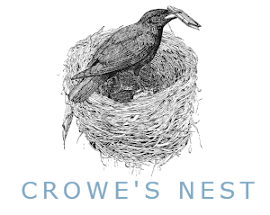My second book went to copy edits yesterday.
I never thought I'd be so thrilled to be able to say that sentence! Book 2 has been a bear. It has challenged me, beat me to a bloody pulp, and raised me up to a higher skill level than I've ever known. It has both frustrated and elated me. And in the end, I'm really proud of what it's become.
I've gone into publishing with my eyes wide open, thanks to the many writing bloggers who've been very honest about the process along the way. They helped prepare me for everything before I got to it. Now that book two is finally done, I want to talk about the struggles of writing a second* book, in hopes that it helps someone in the same way.
(*I'm not talking about writing your second book in general-- I'm talking about writing your second
published book. It comes with entirely different struggles.)
Factors that make that second book hard:
- When you are writing under contract for the first time
- When you are writing the second book in a series
- When that series is a trilogy
- When you are writing a book when you have one out in the wild
Any one of those things make writing the next book hard. Combine two or more, and it gets infinitely more difficult. It's just the way it is.
Things I thought were responsible for making it hard:
- Getting reviews by professionals and by people you don't know will be crippling, and affect your ability to write.
- That it would be tough to write knowing that people outside of your family and critique group were actually going to be reading it.
And just like I had guessed before writing a book 2, those things are true, to one extent or another, depending on your nature. But there's a LOT more to it than that.
Other things that made book 2 hard:
- Character arc. This was a huge stumbling block for me. Before I sold book 1, I had plotted the second and third book. "Plotted" as in "figured out the main plot." For some reason, I had not "plotted" the character arcs. On my next series, you can bet I'll be plotting the character arcs for the entire series along with the main storyline arc from the beginning, since character arc is every bit as important. At the very least, I'd suggest deciding what personality traits will cause them grief, and plant those in the first book.
- Starting over. When it's your first book that you sell, you've likely been working on that same book for a while. Polishing and polishing and making it prettier and prettier. Then when it sells, you work with an editor, and make it shiny enough to see yourself in. So it's understandable that you've forgotten how very un-pretty a first draft is. It can be a little frustrating. And make you wonder if you've forgotten how to write. It's important to somehow remind yourself that book one came out much the same way. Unpretty and all.
- Drafting / editing time. With book one, you got a chance to spend exactly how much time you needed on it. Years, even. You didn't have to query until it was all the way ready. If life got crazy and you needed to take a week off writing to keep things sane, that was fine. Book two? Not so fine. You've got a smaller window of time to write and edit it, so you need to make sure that time is well spent.
- Your editor hasn't seen it. If you sell more than one book, your editor likely has only read the first one, and bought the next + without it being written. Once you do write it, it may or may not be exactly what your editor was hoping for. There may have to be some adjusting to get your visions in line with each other.
- Giving readers what they want. In a series, it's important to repeat some of the things that worked-- the things that readers are hoping to see again-- without actually repeating any of it. Readers HATE when book one feels like a repeat of book two. And sometimes it's hard to guess what were the really successful parts of the book that you should include. And even when you are continuing the successful elements, it's important (and sometimes very difficult) to keep everything fresh and new. Expect it to need a lot more rounds of revisions (or just more intense rounds of revisions) to get the balance just right.
- Pressure to live up to book one. I'm not going to pretend this doesn't exist. Because even when you pretend it doesn't, you feel it. Right in the very center of your soul. And really-- it's not just that you have to live up to book one, but you have to exceed it. It's there. It's a thing. Ignoring it won't help-- you DO need to step up.
- Deadlines. The big D-word. And if you split it up into dead and line, it's two four letter words. It doesn't matter how tired or burnt out you are, or if you just aren't "feeling it." You have to tell yourself that it's time to work, and make yourself do it. I found it really helped to think of what authors I was most hoping to be like, and think how they would handle things. And then just figure if I wanted to be like them, I needed to step up.
- Most advice out there is for writing the first book. There is significantly less on writing a second book, especially on series arcs. But it is out there if you search for it.
I think the more you know about what to expect on this journey, the better you can prepare yourself for it.
If you haven't written a second book after getting one published yet, were there any things on the list that surprised you?
If you've already been through this, what was the hardest part for you? Do you have any advice you want to share?








































